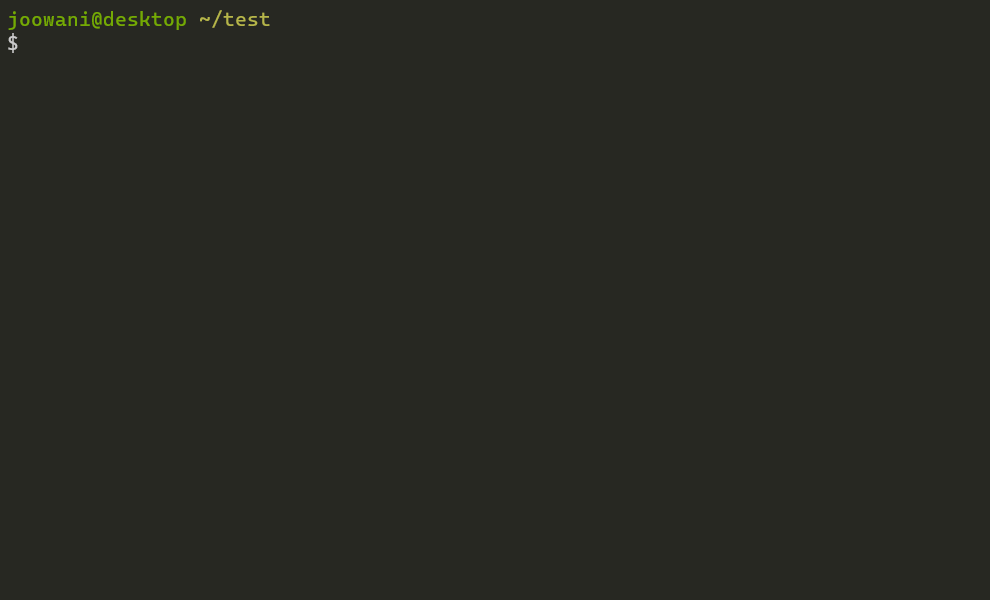Directory Tags for Lazy Programmers
Project description
Dtags: Directory Tags for Lazy Programmers
Dtags is a command-line tool that lets you tag directories for faster filesystem navigation and command execution.
Requirements
- Recent versions of Bash, Zsh or Fish
- Python 3.6+
Installation
Install via pip:
pip install dtags
For Bash, add the following line in ~/.bashrc:
source <(dtags-activate)
For Zsh, add the following line in ~/.zshrc:
autoload -U +X compinit && compinit
autoload -U +X bashcompinit && bashcompinit
source <(dtags-activate)
For Fish, add the following line in ~/.config/fish/config.fish:
dtags-activate fish | source
For Git Bash on Windows, add the following lines
in ~/.bashrc:
export DTAGS_GIT_BASH=1
source <(dtags-activate)
Restart your shell. The following commands will be available after:
tag --help
untag --help
tags --help
d --help
run --help
Tab-completion should work out-of-the-box.
Usage
Tag directories with tag:
# Tag directory ~/foo with "work" (tags are indicated with the "@" prefix)
$ tag ~/foo -t work
/home/user/foo +@work
# If tag names are not specified, directory basenames are used instead
$ tag ~/foo
/home/user/foo +@foo
# Tag directories ~/bar and ~/baz with "app" and "work" (many-to-many)
$ tag ~/bar ~/baz -t app work
/home/user/bar +@app +@work
/home/user/baz +@app +@work
Execute commands in one or more directories with run:
# Run "git status" in all directories tagged "work"
$ run work -c git status
# Run "git status" in directories ~/foo and ~/bar
$ run ~/foo ~/bar -c git status
# Mix tags and directory paths
$ run work ~/foo -c git status
Change directories by path or tag with d:
# Go to directory tagged "work"
# If there are multiple directories, a selection prompt is displayed
$ d work
# Go to directory ~/foo (works just like cd)
$ d ~/foo
# Use -t/--tag to always assume the argument is a tag
$ d -t foo
Untag directories with untag:
# Remove tags "app" and "work" from directory ~/foo and ~/bar
$ untag ~/foo ~/bar -t app work
# Remove all tags from directory ~/foo
$ untag ~/foo
# Remove tag "app" from all directories
$ untag -t app
Manage tags with tags:
# List all tags
$ tags
# List all tags in JSON format
$ tags --json
# Clean invalid directories
$ tags --clean
# Remove all tags
$ tags --purge
Use --help to see more information on each command.
Technical Notes
- Tags are saved in
~/.dtagsdirectory (created when a dtags command is first run). - The files in
~/.dtagsare not meant to be edited manually. - By default, directory paths take precedence over tags when name collisions occur.
- Tag names are automatically slugified (e.g. "foo bar" to "foo-bar").
- Tag names are displayed with the "@" character prefix for easy identification.
- Directory paths and tag names are ordered alphabetically.
Uninstallation
Run the following commands to completely uninstall dtags:
$ pip uninstall dtags
$ rm -rf ~/.dtags
Then remove the dtags-activate line from your shell runtime configuration.
Project details
Release history Release notifications | RSS feed
Download files
Download the file for your platform. If you're not sure which to choose, learn more about installing packages.
Source Distribution
Built Distribution
Filter files by name, interpreter, ABI, and platform.
If you're not sure about the file name format, learn more about wheel file names.
Copy a direct link to the current filters


















